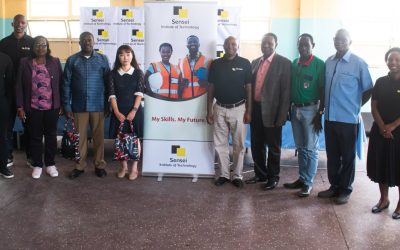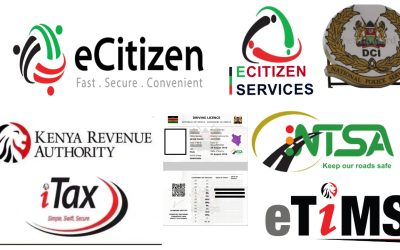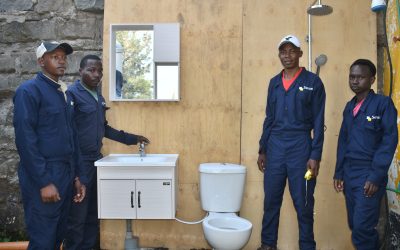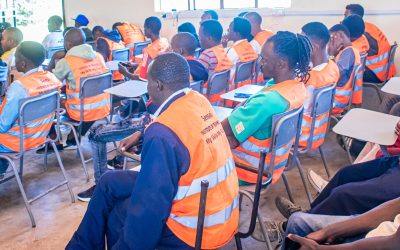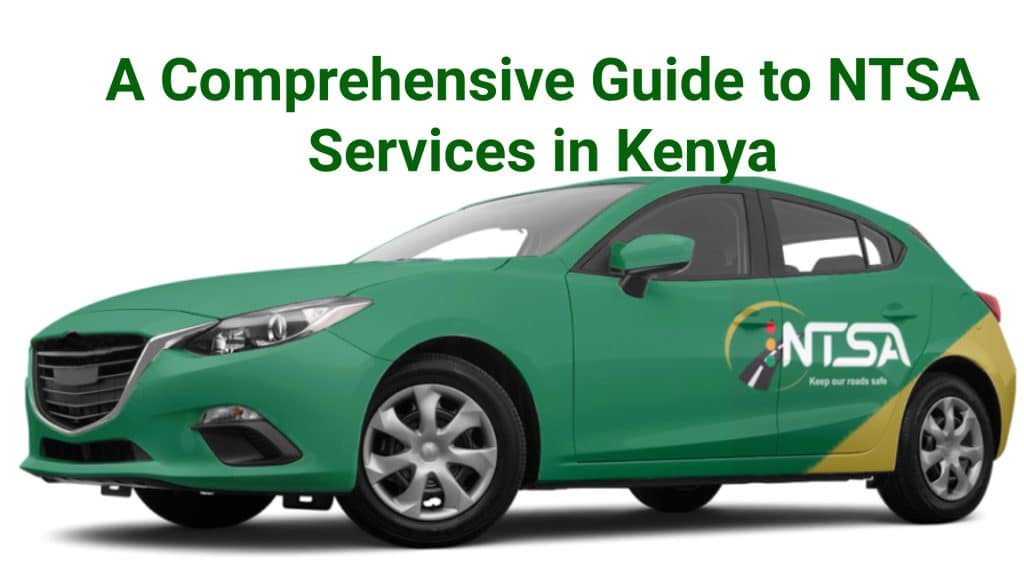
For many Kenyans, obtaining a driver’s license signifies freedom, independence, and the ability to explore the vast beauty of the country on their own terms. But before hitting the open road, it’s crucial to navigate the essential services offered by the National Transport and Safety Authority (NTSA). This comprehensive guide delves into the key functions of NTSA, empowering you to become a responsible and informed driver.
1. Driver Licensing: Your Journey Begins Here
Your adventure behind the wheel starts with a driver’s license. NTSA streamlines this process, ensuring a smooth transition from learner to licensed driver. Here’s a closer look at the services they provide:
- Learner’s Permit: This foundational step allows you to practice driving under the supervision of a licensed driver. NTSA facilitates the application process, which involves filling out forms, paying a nominal fee, and passing a basic eyesight test.
- Driving Test Booking: Conquer your nerves and schedule your driving test with ease. NTSA offers online and mobile app booking options, allowing you to choose a convenient date and time.
- Driver’s License Application and Renewal: Whether you’re a first-time applicant or need to renew your existing license, NTSA has you covered. They handle applications for various license categories, catering to different vehicle types like motorcycles, cars, and commercial vehicles. Each category requires specific tests and documentation.
Understanding the Different License Categories:
NTSA categorizes driver’s licenses based on the type of vehicle you’re qualified to operate. Familiarize yourself with these categories before applying:
- Class A: This category permits driving motorcycles and three-wheeled motor vehicles.
- Class B: This license allows you to operate private motor vehicles not exceeding 3.5 tonnes.
- Class C: This category qualifies you to drive light goods vehicles exceeding 3.5 tonnes but not exceeding 7.5 tonnes.
- Class D: This license is required for driving medium goods vehicles exceeding 7.5 tonnes but not exceeding 12 tonnes.
- Class E: This category permits driving heavy goods vehicles exceeding 12 tonnes.
- Class F: This specialized license is required for driving articulated vehicles.
- Classes G & H: These categories cover special purpose vehicles like tractors and trailers.
Important Considerations for Driver Licensing:
- Age Requirements: The minimum age for obtaining a learner’s permit is 16 years and 18 years for a driver’s license.
- Medical Examination: A valid medical certificate from a registered healthcare provider is mandatory for both learner’s permit and driver’s license applications.
- Driver Training: Enrolling in a driving school registered with NTSA is highly recommended to acquire the necessary skills and knowledge for safe driving.
2. Ensuring Roadworthiness: Motor Vehicle Registration
Owning a vehicle necessitates proper registration with NTSA. This process ensures your car or motorbike meets safety standards and has the legal authorization to operate on Kenyan roads.
Here’s a breakdown of NTSA’s services related to motor vehicle registration:
- New Vehicle Registration: Just purchased a brand new car? NTSA guides you through the registration process. This involves presenting the necessary documentation, paying registration fees, and ensuring your vehicle undergoes a mandatory inspection to verify its roadworthiness.
- Transfer of Vehicle Ownership: Selling your car or motorbike? NTSA facilitates the smooth transfer of ownership by processing the paperwork and updating registration details. This ensures a legal and transparent transaction for both buyer and seller.
- Vehicle Inspection: Maintaining road safety is paramount. NTSA conducts mandatory inspections at designated centers to ensure your vehicle complies with safety regulations. These inspections typically occur annually or upon renewal of your vehicle registration.
Understanding Vehicle Registration Requirements:
- Vehicle Log Book: This document contains all essential information about your vehicle, including its make, model, engine number, and ownership history.
- Importation Documents: For imported vehicles, relevant customs clearance documents are necessary.
- Proof of Insurance: Valid car insurance is mandatory for registration.
- Payment of Registration Fees: Fees vary depending on the vehicle type and engine capacity.
3. Beyond Licensing and Registration: A Range of Valuable Services
NTSA’s services extend beyond driver licensing and vehicle registration. Here are some additional offerings that contribute to a safer and more organized transport system:
- PSV (Public Service Vehicle) Licensing: NTSA regulates public transportation, ensuring the safety and quality of buses, matatus (minibuses), and taxis. They handle licensing procedures and conduct regular inspections of these vehicles.
- Driving School Registration: Looking to learn from qualified instructors? NTSA ensures driving schools maintain high
